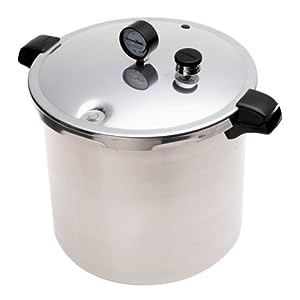Or have to pour out 5+ gallons of beer because aceto, lacto, pedio, and ??? laced starter wort turned your beer into a foul, stinking, though still not poisonous, swill.My understanding is that in the history of mankind, there is not a single case of anyone ever having been poisoned by starter wort that was hot water bath canned, as opposed to pressure canned. Of course, the pat response here is that no one wants to be the first.
The rational for pressure canning has been posted, several times.




























![Craft A Brew - Safale S-04 Dry Yeast - Fermentis - English Ale Dry Yeast - For English and American Ales and Hard Apple Ciders - Ingredients for Home Brewing - Beer Making Supplies - [1 Pack]](https://m.media-amazon.com/images/I/41fVGNh6JfL._SL500_.jpg)


















